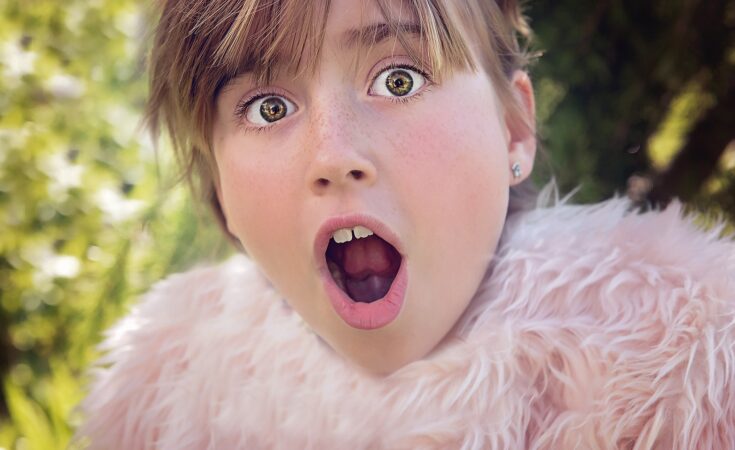Throughout their childhood and adolescence, our children are confronted with fears. The kind of fears we are not always able to understand anymore… Yet we, too, have gone through this stage. However, this stage seems far behind and it is not easy for us, parents, to remember it at the present time. And if we do remember it, the emotions and the sensations are no longer there anyway… Here is a little reminder of the great fears our children face, depending on their age…
The most classic fears in children are fear of the dark, fear of abandonment, fear of rejection, fear of being set apart, fear of not conforming to society or to the image sent back by the other children. The fear of spirits, ghosts, death is also very present. I teach Emotion Management lessons in high school, in France, and during the lesson about the emotion of fear, most of my students confide in me their fear of evil spirits and ghosts! Each of them has a scary story to tell about it. I must therefore constantly reframe and explain that we have a vision of events which works “with filters”. We are the ones who give a color to an event like the fall of a picture frame from a wall when there is no wind… It is still us who feel, after the death of a loved one, a hot or cold wind on the face or who dream of the deceased… Ghosts are a very deep-rooted fear at any age!
What is fear?
Fear is a message sent to us by our body. It has two meanings: it tells us that we must be careful or that we are not ready yet. When our child feels scared before his math test, maybe he’s just scared because he knows he hasn’t studied enough!
The fear of illness is as deep-rooted in kids as the fear of ghosts or death. It is also strongly anchored in the collective unconscious. The dark, the evening coming evoke the fear of wolf. Since time immemorial, nightfall has been associated with the time when wolves come out of their lair. This is strongly inscribed in us. As proof, the crying baby, when everything is fine, it has eaten and its diaper is clean, around 6:00 p.m…. Nightfall and the dark color conceal ancestral fears.
The fear of the Unknown
Nothing scares more than the unknown and the invisible. A ghost is invisible. Death is invisible. Nor are the myths and urban legends transmitted orally. For example, my 6 year old son has a great fear of extra-terrestrials. When I told him that we had no proof of their existence, he replied: “Mom, if a small flower or a small seed grows on another planet then it is already extra-terrestrial!” It is difficult to reassure him on this point!
The fear of aliens or spirits is quite similar. We fear intangible things.
The fear of growing up, of aging, of seeing one’s body deteriorate and of dying is present in our children. Some teens, alas, may not bear the pressure on them about the unknown that awaits them. This is why it is very important to talk with our teenagers about their deep fears.
Fear takes on another character: it is a prison! Yet let us remember and remind others that fear is only an illusion. We extrapolate, we imagine the worst… We feed it!
Fear is a prison because it prevents us from living fully. If your teenager refuses to go on a language course abroad because he has a phobia of flying, then he is taking away countless social possibilities but also unique experiences. It is unfortunate and harmful.
This is why every fear developed by our kid or teenager should be addressed through words. Solutions should be found, such as stress management, or thought-correcting exercises (moving to positive thinking), rather than letting it run and grow again and again!
An important principle regarding fears:
Those we feed grow. Those that we put on a diet by rejecting them end up disappearing, they become obsolete…
Another overriding principle:
Our mind is programmed to constantly relive the past and project us into the future. Therefore, living our actions in full consciousness, allows us to dissipate our fears. This is what we must explain to our teenagers. When they are drawn into tasks with responsibility, manual tasks, they forget their fear. Why? Because they fully live the present moment.
Fears find their source in the past and the future. We remember the bad and fear it will happen once more. We anticipate the future and fear that it will not unfold according to our wishes. This is why the present moment is everything! It is so important! This is where the life and the truth are!



































